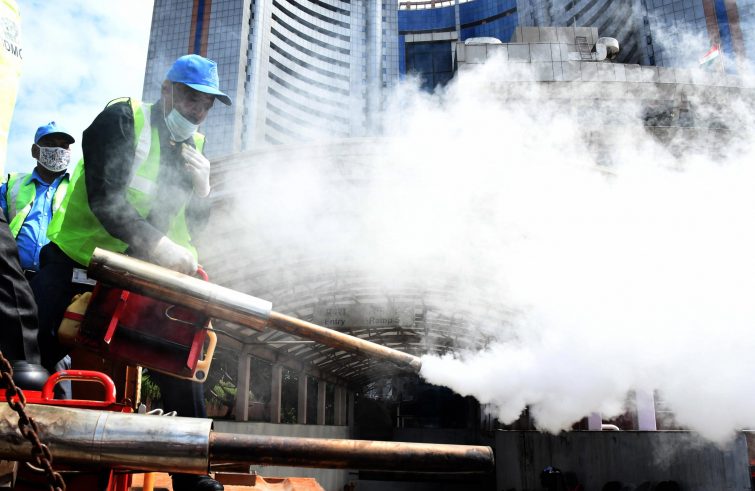
Every year, 700,000 people worldwide die from malaria, transmitted by the Anopheles mosquito. Children under the age of five are the majority of the victims. It’s a tragedy that has been unfolding every year for years in the poorest areas of the planet.
The World Health Organisation’s approval of an effective malaria vaccine has thus drawn the attention of the scientific community and the general public.
“We have high hopes”, Claudio Venturelli, entomologist at the Local Health Department (AUSL) of the Romagna region told SIR, pointing out that malaria is not the only killer. Also dengue, another disease transmitted by mosquitoes, claims human lives. Over the past days Belgium’s Katholieke Universiteit Leuven announced successful results in trials of a potent antiviral that blocks the spread of the virus. The drug is not yet available for human use, but there is great hope even in this case. What about the new mosquitoes brought from Korea and Japan and detected in Italy? For now no cause for alarm, but the expert warns of their propensity to transmit viruses.
Doctor Fusanelli, at which stage is the global fight against Malaria, Dengue and other vector-borne diseases?
Mosquitoes are among the most dangerous species in the world. Unlike the shark or the wolf, causing 10 deaths per year, mosquitoes kill more than 700000 people every year, equivalent to 2,000 deaths per day.
Seventy to seventy-five percent are children under five. Most deaths occur in Sub-Saharan Africa where malaria is a devastating disease for entire families and villages. This is especially true for children whose immune system is not strong enough or are vulnerable for other reasons: hunger, thirst and dysentery. People in Italy hardly ever die from malaria because we have a national health service that offers treatment. But in those countries people have to choose between buying food and buying anti-malaria drugs. So the disease is not the only cause of death, there is also hardship, poverty and poor access to treatment.
The WHO has recently approved a malaria vaccine. Are there grounds for hope?
Hopes are high. The vaccine has been found to reduce mortality by 40% in the Sub-Saharan African populations where the trial was conducted.
The vaccine has also proved to reduce the severity of the disease. The trials were limited to the under-12 age group, but the WHO has announced plans to extend them to include the adult population. Press coverage of the malaria vaccine should be greater, with increased emphasis by policy-makers since
Malaria is as deadly as Covid-19. It has been killing people every day, for years.
An antiviral drug has been announced for use against dengue, although not yet for human use.
The first trials have shown it to be effective. Thus we are hopeful about this drug too, since dengue is yet another serious disease. An outbreak occurred in Italy last year, fortunately during the lockdown period so it did not spread.
How dangerous is dengue at global level?
Very dangerous.
Two and a half billion people live in areas at risk of infection with dengue viruses.
The regions include the sub-Saharan part of Africa, Asia, Latin America and Central America. There was an outbreak in Brazil last year, for example. Few cases have been recorded in Italy this year since travel has been significantly lower, while 10-12 cases were reported in Emilia Romagna alone in 2018.
Two new species of mosquitoes have recently been detected in Italy. Should we be afraid of them?
There are two: Aedes koreicus from Korea and Aedes japonicus from Japan, found in Italy since 2011. They arrived in Italy via travel or freight from neighbouring countries such as Slovenia, Austria and Germany but they are unlikely to spread since their activity is favoured by colder climates. The Koreicus mosquito is more tolerant of cold temperatures thanks to its hairs enabling it to adapt even at an altitude of 1200 metres. It has been found in Friuli, Veneto, Trentino and now also in Piedmont and Lombardy.
The mosquito could be a disease vector, but it has never happened in Italy.
Which diseases could it transmit?
Chikungunya, Dengue and Japanese encephalitis. In its countries of origin, the Korean mosquito is known to have caused the transmission of these diseases.
As with all species that settle in a new territory, since they did not exist there before they are less known and are therefore monitored. Efforts are being made to detect them as soon as possible in order to eradicate them.
Should they begin to spread, as was the case with the tiger mosquito, they would quickly become numerous and capable of transmitting diseases.
How can they be eradicated?
In the case of tiger mosquitoes, public health authorities have never really focused on prevention.
That’s why emphasis is placed on effective monitoring and targeted eradication plans. When they are found in small areas, attempts are made to detect and eradicate them. However, it’s not easy. Eradicating them completely is hard to put into practice because interventions may take place in one district but not in the neighbouring ones.












